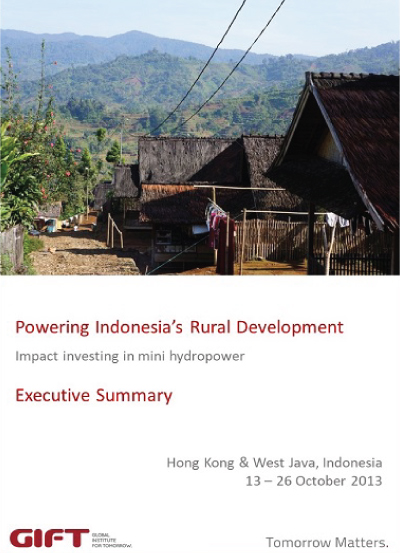Indonesia’s vast geography, over 17,000 islands and a population of more than 250 million, makes the delivery of reliable, affordable electricity one of its greatest national challenges. Despite ambitious government targets to increase renewables to 25% of the energy mix by 2025, progress remains slow: as of 2010, renewables accounted for only 6.9%, leaving more than 70 million Indonesians without consistent access to electricity.
The State Power Company (PLN) is working to expand the grid while improving transparency and efficiency. Yet traditional energy business models continue to avoid small-scale rural projects due to high risks and low returns. This gap has left millions underserved, while coal remains the dominant source of power.
To address these challenges, participants of GIFT’s 33rd Global Leaders Programme collaborated with Indonesian NGO IBEKA to design a new approach: NusaTerang. The business model reduces risk through community co-ownership, leverages IBEKA’s 20+ years of experience in small-scale hydropower, and introduces ecosystem service payments to reflect the true value of natural resources. Communities are engaged from the outset, with the ultimate goal of full ownership, ensuring that energy production not only powers homes but also strengthens livelihoods.
The proposed model aims to raise US$30 million to develop five projects totaling 15MW, generating annual returns of 5.5 to 6.5% and providing around US$500,000 per year to local communities for social and infrastructure development.
The programme took participants from Hong Kong to Jakarta and West Java, where they engaged directly with business leaders, PLN executives, and rural communities such as the Kasepuhan Kingdom. These exchanges grounded the business plan in on-the-ground realities and culminated in a high-level forum with investors, policymakers, and renewable energy companies.
By combining sustainability, transparency, and community empowerment, NusaTerang demonstrates how renewable energy in Indonesia can be both financially viable and socially transformative, which offered a model with relevance across Asia’s emerging markets.


